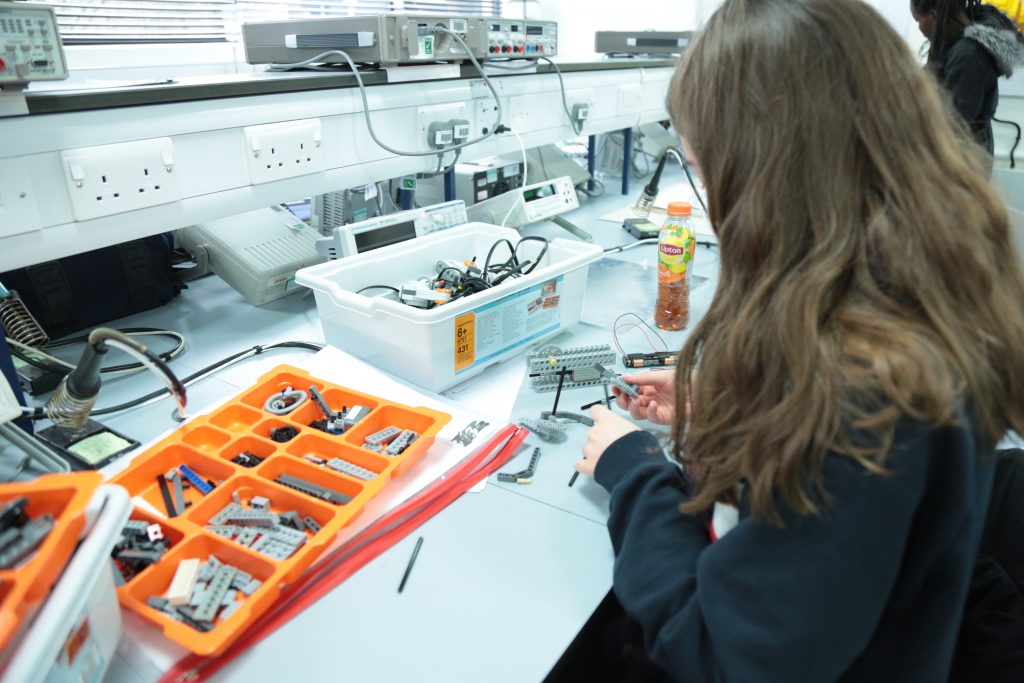The School of Engineering Digital Arts (EDA) welcomed a contingent of 53 sixth form students from schools and colleges around the South-East. They worked with mentors and University of Kent technicians to create working models, including: Wearable Technology, Head-Up Display for Cars, GPS Guided Medibot (for the battlefield) and an Underwater Vehicle. Other projects explored using Kinetic Energy and Automating a Rotary Table.
The two-day workshop on 9th and 10th January 2020 was organised by the educational charity the Engineering Development Trust (EDT), which is the largest provider of STEM (science, technology, engineering and mathematics) enrichment activities for UK youth. The EDT provides opportunities for the students to enhance their technical, personal and employability skills through industry-led projects, industrial placements and specialized courses, enabling them to make an informed decision about their future.
The Engineering Education Scheme students will become Gold Level Industrial Cadets on completion of the six-month projects.
The workshop in EDA enabled students to engineer solutions to real industrial problems provided by companies linked to each school or college. For the workshop, EDA made its laboratories available, as well as providing support from its technicians and academic staff. The workshop also highlighted to the students the wide range of courses our School has to offer, from electronic, computer systems engineering, biomedical and mechanical engineering to digital arts and multimedia technology and design.
This year, the schools attending the two-day workshop were: Newstead Wood, Simon Langton Boys, Darrick Wood School, Highsted Grammar, St Paul’s Girls, Rochester Grammar School, Eton College, The Fitzwirmarc School and Ormiston Rivers Academy. Participating companies included: BAE Systems, DSTL, Pavegen, GlaxoSmithKline, Cairn Research, GE Capital, ARUP and Leonardo.
Reporting on the workshop, Paul Sands, EES Delivery Manager for South East England, said, ‘The University of Kent workshop experience is the highlight of the six-month project for the local students. They really enjoy their time at the University and hopefully it will encourage many of them to take STEM further.’
The Engineering Education Scheme has been running for over 35 years, and since its inception in 1984 over 34,000 students have participated. Nearly 90% of students go on to read engineering or associated science/IT/technical degrees with 97% of participating engineers considering the scheme to be relevant to their company’s needs.

